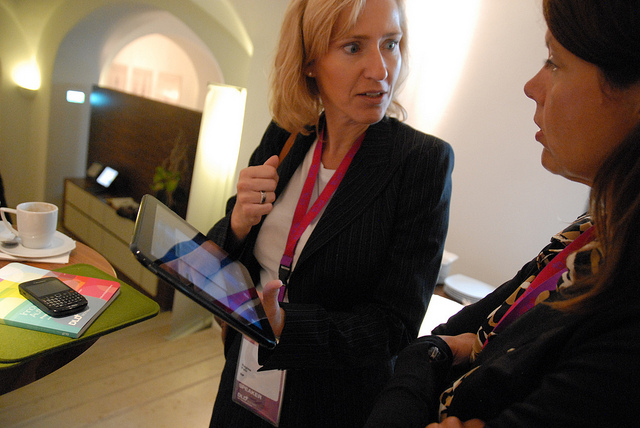Targets or deadlines – What’s your key driver?
October 31, 2014
Which motivates you more – targets or deadlines? That may sound like an odd question. They’re both about meeting some kind of goal in a certain time frame, after all. Well yes, but in my experience people tend to focus on one or the other and this has a profound impact on the way they work.
People who focus on deadlines are generally interested in the task they need to complete by that deadline and the quality of their output. An example might be writing a report or compiling a set of accounts by a certain date. In a non-work context, it might be redecorating a room or even building a house.
People who focus on targets, by contrast, tend to be more interested in outcomes than outputs. An obvious example would be generating a certain amount of revenue in a month but targets can cover anything from gaining Twitter followers to losing weight.
Project managers vs Operational managers
Deadline-driven people often make very good project managers. They take a goal, such as creating a new website, break it down into a series of discrete stages – design, build, test and so on – and create a plan to complete each stage through a series of successive deadlines. Whether they carry out the work themselves, manage others to do it or outsource it, their primary focus is on ensuring sufficient progress is made to meet the deadline (as well, of course, as checking that the work is up to standard and the budget hasn’t been exceeded).
and the budget hasn’t been exceeded).
By contrast, target-driven people often make very good operational managers, who have to meet certain operational goals month after month after month. Their focus is more on monitoring sales, production levels, costs, customer satisfaction and so on to ensure the operation stays on track.
These are quite different mindsets and, from a management perspective, very different skillsets. The problem comes when people are required to do both. There are two groups for whom this is a particular issue – the self-employed and senior executives.
The self-employed
Those of us who work for ourselves have to focus on both targets and deadlines, but often don’t. I’m a deadline driven person – and, frankly, fairly hopeless without one. I think in terms of chunks of work to be completed by specific dates. Targets, on the other hand, rarely figure in my thinking and I don’t find them particularly motivating. I use a business coach (Hi Chris!) to help me focus on vital questions like how much income am I generating and am I getting paid on time.
Targets, on the other hand, rarely figure in my thinking and I don’t find them particularly motivating. I use a business coach (Hi Chris!) to help me focus on vital questions like how much income am I generating and am I getting paid on time.
This is a function of my personality not my job. It would be entirely possible to be a self-employed consultant and focus on targets such as number of paid consulting days, average fee, positive feedback ratings from clients and so on. One is not better than the other, but they are different ways of thinking about the same situation.
Senior execs
In larger organisations, the people who have to do both are those at the top. Sometimes these are people who have come up through a project route (IT project managers, for example) and think in terms of deadlines and milestones. They have to learn how to monitor operational targets. Much more often though, they are experienced operational managers who understand how to monitor the operational and financial performance of a business. For them targets are second nature but deadlines and milestones rarely feature in their thinking. In my experience of coaching senior executives, this is typical of Operations Directors and Managing Directors.
You can, of course, run a business quite successfully using a target-driven approach, but only in ‘business as usual’ mode. As soon as any kind of change is required then deadline-driven, project management skills are needed. Whether it’s acquiring a new business, re-branding the company or developing a new IT system, targets are not going to help, but milestones and deadlines will. Operationally-focused people need to acquire a different mindset and a new set of skills to manage these change initiatives.
The right tool for the job
So how do you develop the ‘other’ mindset and become more flexible in the way you manage your work, your time or your business? Well the first thing is to recognise the distinction and decide ‘Is this something that is better managed through targets or deadlines?’. The second thing is to make sure you have the right tools for the job. For target-driven activities, you need a process. For deadline-driven activities, you need a plan.
A process is there to help you manage the regular, routine aspects of your work. You’ll need some information – e.g. sales figures, web analytics, production rates, costs – and some standard way of monitoring these against targets.
A plan is there to help you manage ad hoc activities that don’t fit int the day-to-day routine. You’ll need to work out what you need to do, in what order to achieve your objective by the deadline.
Bringing it all together – and a cheeky request
Sometimes targets and deadlines can be useful for looking at different aspects of the same activity. For example, writing one blog a month can hardly been seen as a target, so I treat it as a deadline-driven activity, which I often achieve only by the skin of my teeth (here we are on Halloween and this is my October blog. Addendum, and I’m reusing it in 2018 because extra work meant I didn’t have time to write anything this month). Gaining new readers for my blog, on the other hand, is a target-driven activity and one I tend to forget about. So with that in mind, I’ve set myself a target of getting 20% more blog hits than last month. If you feel so inclined, would you mind tweeting this post or forwarding it to someone you think may find it interesting, please? Who knows, I may just learn to find targets motivating after all…….
which I often achieve only by the skin of my teeth (here we are on Halloween and this is my October blog. Addendum, and I’m reusing it in 2018 because extra work meant I didn’t have time to write anything this month). Gaining new readers for my blog, on the other hand, is a target-driven activity and one I tend to forget about. So with that in mind, I’ve set myself a target of getting 20% more blog hits than last month. If you feel so inclined, would you mind tweeting this post or forwarding it to someone you think may find it interesting, please? Who knows, I may just learn to find targets motivating after all…….
Photo credits
Clocks – Alan Cleaver
Target – Nicolas Raymond
Home working – Peter Thoeny
Executives – Innovate 360
20 – Wally Gobetz





